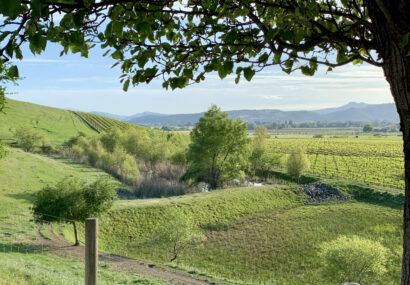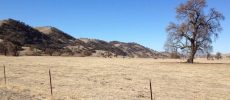
The Covid-19 ongoing pandemic is touching all aspects of people’s lives and livelihoods. Many states have issued shelter-in-place orders (or stay-at-home orders) effectively shuttering wide swaths of the economy, and in states where such orders do not exist many counties and cities have issued their own orders filling the void. On March 25, 2020, the State of Idaho, Department of Health and Welfare, issued a statewide “Order of the Director—Order to Self-Isolate” (Order) urging Idahoans to stay home except for “essential” businesses and services. This, in turn, is yielding an interesting sociological experiment regarding the subjectivity surrounding one’s definition of “essential.” Regardless, there is no question that the delivery and drainage of irrigation water are “essential” services.
Essential Infrastructure
In Idaho, like many other western states, irrigation water delivery and drainage functions are performed by private corporations (non-profit, share-based canal and ditch companies) and (typically) larger irrigation and drainage districts (which are hybrid, quasi-municipal corporations exercising a variety of governmental functions and authorities). Under Idaho’s Order, both types of entity are deemed “essential” in terms of operating and maintaining “Essential Infrastructure” and operating as an “Essential Business.”
The Order defines “Essential Infrastructure” to include the “operations and maintenance of . . . water . . . systems,” among a variety of other systems and services. Order §8.c. The Order defines an “Essential Business,” in part, as including businesses and operations directly performing or supporting/supplying “food cultivation and production, including farming, livestock, fishing, and food processing.” Order §§ 8.f.iii and 8.f.xvi. Irrigation and drainage entities do both of these things.
Irrigation Entities
Beyond the definitions of the Order, irrigation entities are statutorily obligated to function for the benefit of their landowners (in a district) or shareholders (in a company). For example, Idaho Code § 42-1201 requires “every person, company or corporation owning or controlling any ditch . . . for the purpose of irrigation . . . to keep a flow of water therein sufficient to the requirements of such persons as are properly entitled to the use of water therefrom” between April 1 and November 1, subject to seasonal start and end date discretion of entity governing boards. Idaho Code § 42-1202 requires that such ditches be maintained during the non-irrigation season in a manner readying them for the irrigation season. And, Idaho Code §§ 42-1203 and 42-1204 require irrigation ditch owners and operators to actively manage the ditch systems so as not to “damage or in any way injure the property or premises of others.” These statutory duties and obligations remain regardless of the contents of the Order (particularly when the Order is otherwise silent concerning the same).
Finally, irrigation districts and drainage districts are further “essential” given their quasi-governmental-form and function. The Order makes clear that “Essential Government Functions” are to continue in the interests of providing for the health, safety, and welfare of the public. Prior to issuing the Order, the Governor’s Office issued a Proclamation on March 18, 2020 relaxing the provisions of Idaho’s open meeting laws (which irrigation and drainage districts are subject to) because “government agencies and boards need to continue operate, make decisions, and ensure the continuity of services to the people of Idaho during the declared emergency.” Among the governmental functions of irrigation district are, for example, the statutory requirements to conduct monthly meetings and “do any and every lawful act necessary to be done that sufficient water may be furnished to the lands in the district for irrigation purposes.” Idaho Code §§ 43-303 and 43-304.
Conclusion and Implications
While there are some limited exceptions in highly urbanized areas, the vast majority of Idaho irrigation and drainage entities support production agriculture and all entities operate and maintain water systems. Nonetheless, and out of an abundance of caution, the Idaho Water Users Association expressly inquired of the Governor’s office whether irrigation water delivery and drainage entities—no matter private corporation or quasi-municipal district—were deemed “essential” under the Order. Not surprisingly, the Governor’s Office responded affirmatively. Consequently, the Order does not shut down irrigation or drainage entity services and those services (thankfully) continue during these trying times.
If you happen across an employee of your local irrigation and/or drainage entity discharging their duties, please tip your cap to them (with at least six-feet of separation between you) and thank them for doing so. Irrigation and drainage are, in this author’s opinion at least, vital services that help provide at least one avenue of normalcy during these anything-but-normal times.
(Andrew J. Waldera)



